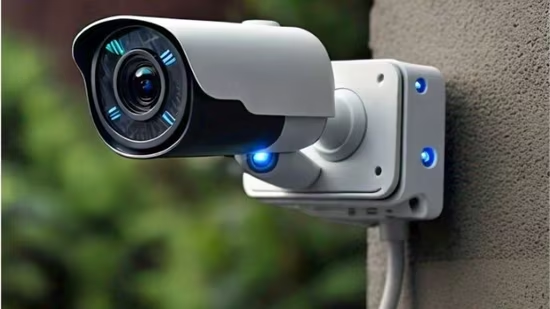Understanding CCTV Camera Systems
In today’s world, where safety and security are paramount, understanding CCTV camera system is essential. These systems have become a ubiquitous presence in both residential and commercial spaces, offering peace of mind and enhanced surveillance.
What Is a CCTV Camera System?
A Closed-Circuit Television (CCTV) camera system comprises cameras, monitors, and recording devices designed for surveillance and security purposes. Unlike traditional television broadcasts, which transmit signals publicly, CCTV systems operate within a closed network. This means that the footage is viewable only to those authorized, creating a more secure environment. With advancements in technology, these systems now come equipped with features such as remote access, motion detection, and high-definition recording.
How CCTV Works: The Technology Behind Surveillance
At its core, a CCTV system captures video footage through cameras that transmit signals to a central recording device, such as a Digital Video Recorder (DVR) or Network Video Recorder (NVR). The cameras can be wired or wireless, depending on the setup. They utilize various technologies, including analog and digital signals, to ensure the transmitted video maintains high quality. Some advanced systems even employ Artificial Intelligence (AI) to enhance surveillance capabilities, enabling features like facial recognition and automated alerts.
Benefits of Installing a CCTV Camera System
The advantages of installing a CCTV camera system are manifold. From deterring criminal activity to providing valuable evidence, these systems play a crucial role in enhancing security. Moreover, they can offer remote monitoring capabilities, allowing homeowners and business owners to keep an eye on their properties from anywhere in the world.
Improved Security: Keeping Your Home and Business Safe
A robust CCTV system significantly bolsters security. By installing cameras at strategic locations, you create a visual deterrent against potential intruders. The mere presence of a camera can discourage criminal behavior, making it less likely for burglars or vandals to target your property. For businesses, this enhanced security can also protect against theft and ensure employee safety.
Deterrence: How Cameras Prevent Crime
Research shows that properties equipped with CCTV cameras experience lower crime rates. Thieves often avoid homes or businesses with visible surveillance systems, preferring targets where they are less likely to be recorded. The psychological impact of being watched is a powerful crime deterrent, reinforcing the safety of your surroundings.
Key Features to Look for in a CCTV Camera System
Choosing the right CCTV camera system requires careful consideration of several key features.
Resolution Matters: Choosing the Right Image Quality
One of the most critical factors in selecting a CCTV system is the resolution of the cameras. Higher resolution cameras provide clearer images, making it easier to identify faces and details. Look for systems that offer at least 1080p (Full HD) resolution for optimal clarity. Some advanced systems even offer 4K resolution, ensuring you capture every detail.
Field of View: Understanding Camera Angles and Coverage
The field of view (FOV) of a camera determines how much area it can cover. Cameras with a wide-angle lens can capture more extensive areas, reducing the number of cameras needed for comprehensive coverage. Understanding the layout of your property will help you choose the right cameras with appropriate FOVs to eliminate blind spots.
Night Vision: Ensuring Visibility in Low Light
Many incidents occur during the night, making night vision capabilities crucial. Look for cameras equipped with infrared (IR) technology that allows them to capture clear images even in complete darkness. Some advanced models use color night vision, providing enhanced visibility in low-light conditions.
Wired vs. Wireless: Which Setup Is Right for You?
When selecting a CCTV system, you must decide between wired and wireless cameras. Wired systems offer a stable connection and are less susceptible to interference. However, they can be more complex to install. Wireless systems provide flexibility and ease of installation, making them ideal for DIY projects. Consider your property layout and installation preferences when making this decision.
Storage Solutions: Choosing Between Local and Cloud Options
Storage is a crucial aspect of any CCTV system. You can choose between local storage, such as hard drives, and cloud storage, which allows remote access to footage. Local storage can be more cost-effective, but cloud storage offers convenience and peace of mind, as your footage is safely stored offsite and accessible from anywhere.
Budgeting for Your CCTV Camera System
Before purchasing a CCTV system, it’s essential to establish a budget. The costs can vary significantly based on the features, quality, and brand of the equipment.
Cost Considerations: What to Expect
When budgeting, consider not only the initial purchase price but also potential installation costs, maintenance, and storage expenses. Quality systems may require a higher initial investment but often pay off in reliability and performance.
Best Value for Your Money: Balancing Price and Features
Finding the best value means balancing price with the features that matter most to you. Research different brands and models, comparing specifications to ensure you’re not sacrificing quality for a lower price. Investing in a reputable brand can save you money in the long run, reducing the likelihood of needing repairs or replacements.
Installation Options: DIY vs. Professional Setup
When it comes to installing your CCTV system, you have two main options: DIY installation or hiring a professional.
DIY Installation: Pros and Cons
A DIY installation can save you money and allow for customization according to your preferences. However, it requires a certain level of technical know-how and may be time-consuming. Ensure you follow manufacturer instructions closely and consider any specific requirements for your system.
Professional Setup: Ensuring Optimal Performance
Hiring a professional installer can be beneficial, especially for complex systems. They can ensure that your cameras are correctly positioned and calibrated, optimizing their effectiveness. Additionally, professional installation may come with warranties, providing peace of mind.
Navigating Local Regulations and Legal Considerations
Before setting up your CCTV system, it’s essential to be aware of local regulations regarding surveillance. Laws can vary significantly by region, affecting how and where you can place cameras.
Privacy Concerns: Understanding Your Rights and Responsibilities
Understanding privacy laws is crucial to avoid legal issues. Make sure to inform employees, visitors, or tenants that they are being recorded, and adhere to regulations regarding public and private spaces. Respecting privacy rights not only helps you stay compliant but also fosters trust within your community.
Future-Proofing Your CCTV System
Technology is continuously evolving, making it essential to future-proof your CCTV system.
Upgrading and Expanding Your System Over Time
Choose a system that allows for easy upgrades and expansions. Modular systems enable you to add more cameras or features as your needs change. Staying informed about the latest advancements can help you adapt your system without starting from scratch.
Top CCTV Camera Systems on the Market
The market offers a variety of CCTV camera systems, each catering to different needs and budgets.
Comparing Popular Brands: Features and Pricing
Research and compare popular brands to find the best fit for your requirements. Consider features, customer service, and warranty options when making your selection. Brands like Arlo, Nest, and Hikvision each have unique strengths, appealing to different user preferences.
User Reviews: Insights from Real-Life Experiences
Reading user reviews can provide valuable insights into how well a CCTV system performs in real-world situations. Look for reviews that highlight installation experiences, reliability, and customer support. These testimonials can guide you in making an informed decision.
Conclusion: Making an Informed Decision
Choosing the right CCTV camera system involves understanding your unique needs, evaluating key features, and budgeting appropriately. With the right research, you can select a system that provides security and peace of mind for your home or business.
Final Tips for Choosing the Right CCTV Camera System
Take your time when selecting a CCTV camera system. Don’t rush the decision-making process; ensure you thoroughly understand your options. Always consider future needs and technological advancements to invest in a system that will stand the test of time. With the right knowledge and tools, you can create a safe and secure environment tailored to your specific requirements.

